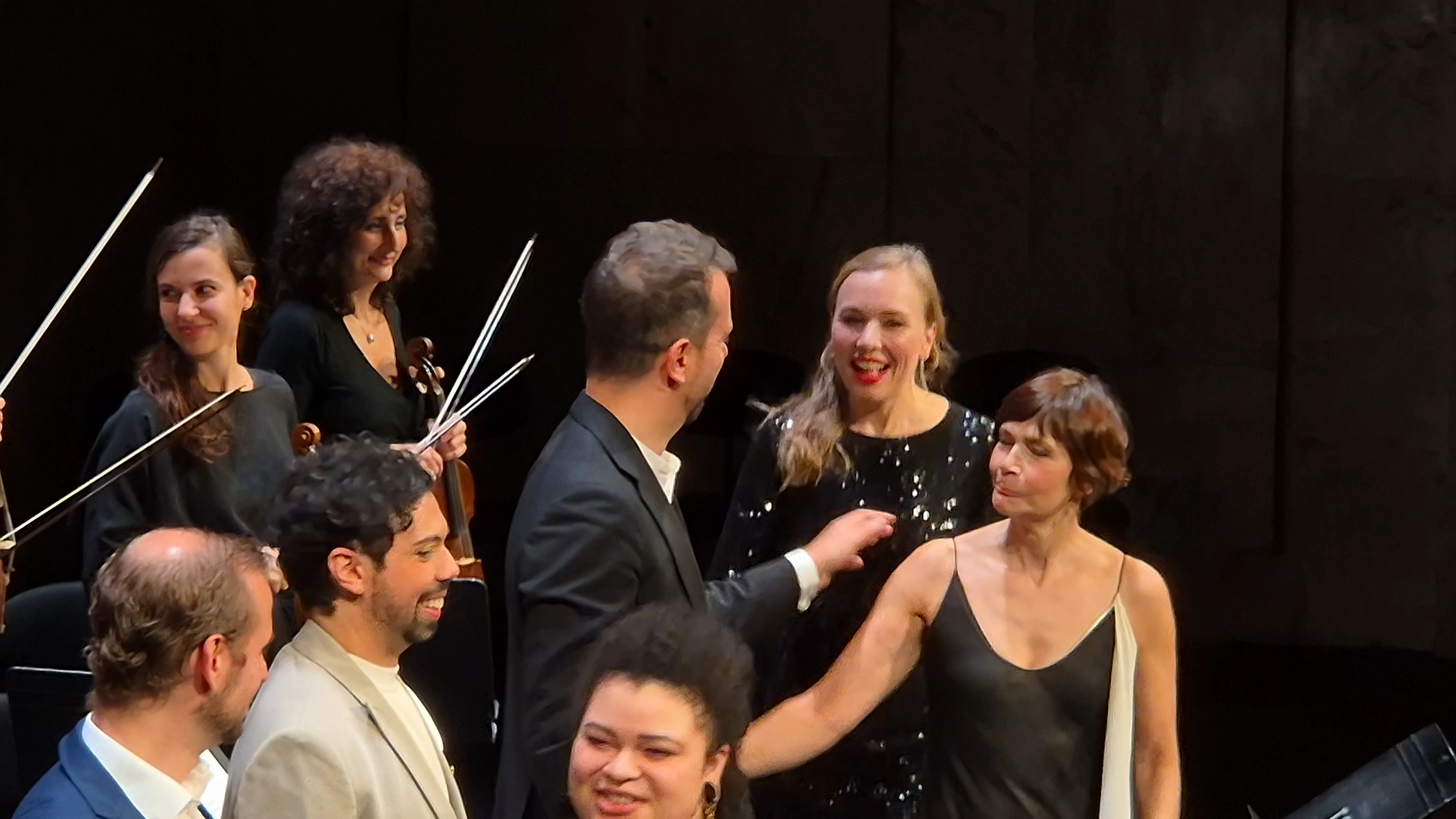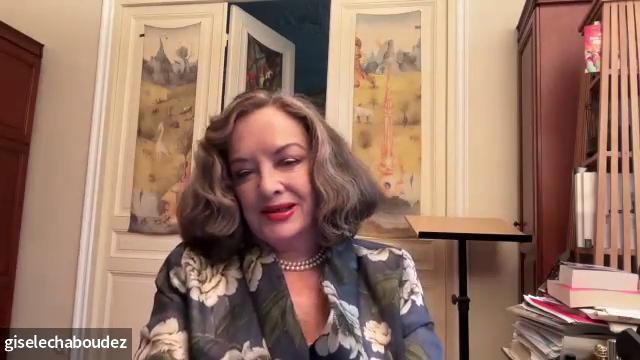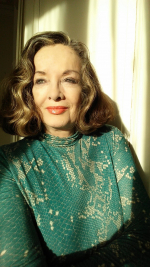Texts in english
Gisèle Chaboudez came to psychoanalysis after training as a doctor and then as a psychiatrist. Interested in psychoanalytical conceptions, she joined this field by opting for the inflection that Lacan brought to the thought of Freud, Klein and some others, and undertook her training with him, continued until his death. She worked as a medical director in two medical-psychological centers for children, and developed her psychoanalytical practice in her office. She participated in the beginnings of La Cause freudienne, founded by Lacan, and taught in the psychoanalysis department of the University of Paris VIII. She later joined the institution Espace analytique, where she has held various positions, as President and now as Vice-President, and is also the editor of the review Figures de la psychanalyse.
She gives lectures, participates in colloquia and seminars. She is the author of L'équation des rêves, Rapport sexuel et rapport des sexes, Que peut-on savoir sur le sexe ? Un rapport sans univers, Ce qui noue le corps au langage, Féminité singulière.
The works presented here reflect on the evolution of concepts with the evolution of subjectivity, sexuation, the unconscious and politics, in terms that imply a psychoanalytical thought based on the deciphering of Lacanian advances not yet in use, their elaboration of a new logic, their dialogue with Freud and others. Sometimes denounced for having let the last century make the necessary corrections in the discourses and laws without participating in them, especially concerning the question of sexuation and the relation of the sexes, accused of sticking essentially to the prejudices of Freud's time, whereas this discipline was born and developed as a revolutionary thought reorganizing thousand-year-old conceptions, psychoanalysis can nevertheless, under certain conditions, draw the bases of a thought of the future. No longer favored by institutions as was the case in the last century, psychoanalysis is facing a difficult stage in its history, but one that lends itself all the more to a necessary evolution. Those who, in the 1970s, gathered around J. Lacan, having understood that he was undertaking to re-found in this sense what should be of Freudian thought, encountered an unprecedented difficulty. If the importance of his thought was immediately apparent, he had nevertheless chosen to state it in an enigmatic mode, by ciphering his statements more and more throughout the years, in order not to be understood too quickly, having noticed that Freud's thought, easy to read although complex, had been rapidly metabolized without taking the full measure of it.
Lacan's text became an enigma to be deciphered, many of the statements made in his thought were uncertain or inaccessible, and commentaries often stuck to the tone he adopted, sometimes conservative and provocative, judging that he was simply repeating the entirely phallic grammar that Freud had described, whether to welcome or to deplore him. However, he deciphered this grammar of our sexual laws, criticizing what he called a "simple fiction", a logic that he discovered supported on certain physiological particularities, when psychoanalysis until then made of the anatomy a destiny. He constructed in addition another logic that escapes it, and that intervenes from outside the discourse with a very real incidence.
The deconstruction of the symbolic Father of monotheistic religions and patriarchal societies was just as much a matter of misunderstanding, since it seemed to many at first that Lacan was supporting the Name of the Father, which is the keystone of it, when in reality he was criticizing it with the Oedipus that psychoanalysis had reconducted, by asking: If that must give the norm, why does it give neurotics ? He then showed how a number of effective functions are constructed to take the place of a structuring third between mother and child, so that the unique and exclusive function of the Father is no longer necessary and his universal power largely reduced.
We can also argue, by deciphering this Lacanian text, that his reworking of this theory of the dream which was also criticized at the time of its Freudian stage, notably by neuroscientists, despite the fundamental discovery it represented, now responds on many points to a current need concerning our approach to and use of the dream. The ciphering of the dream, which makes it incomprehensible to an ordinary reading, does not aim so much at overcoming a censorship as at elaborating the letters and the logic of a possible mode of jouissance, which is admitted into the linguistic system of the unconscious, and keeps at a distance the others that overflow it. A cipher made for jouissance, like all the literal formations of the unconscious, omnipresent in our practice which sets out to decipher it and above all to use it, comprising efficient metaphors, efficient calculations on the organization of the jouissance of a speaking being, in terms that balance each other and reach a homeostatic subjective equation. At the heart of these great building sites that psychoanalytical thought has opened, these profound reorganizations turn out to trace the conditions of a thought to come.
Deciphering is different from a usual reading, because one refrains from understanding the text as it is, which does not correspond to anything. Not to understand it, therefore, but to pick up one by one the letters that form it, without missing any, and to read them with the help of associations, not ours of course, but that of the author, a little before or a little further on in the statement, because he too speaks in the manner of an analysand, as he said. Then take up this whole and at each stage, conclude as to a meaning coming from what the associations have discovered. This involves first spelling out the elements one by one, for example in relation to a given concept, then identifying the precise point at which the overall meaning takes shape, inflecting all that precedes, and finally verifying further on whether it has indeed been oriented in this way, if the rest of the propositions confirm it.
Many Lacanian contributions are necessary to advance in the psychoanalytical thought to come, which is an essential part of the thought at all, and yet are still left aside.They are examined here throughout the works presented, then prolonged little by little by our proposals in different points, in a close collaboration with the research activity of Espace analytique, its speakers, teachers, authors.

Alcina, Georg Friedrich Haendel
Alcina, Georg Friedrich Haendel, Libretto by Antonio Fanzaglia, after Orlando Furioso, by Ludovico Ariosto, (First performance at the Royal Theatre Covent Garden, London April 16, 1735.) Opera en concert, Théâtre des Champs Élysées, December 5, 2024.





Murmuration
The 13th Artpresents Murmuration, Dance, 1h15, From Tuesday 11 April to Saturday 8 July 2023.




Singular Femininity : The All and the Not-All
New York city, Après-coup Psychoanalytic association, with Paola Mieli.

Orpheus’ obviousness
Orphée et Eurydice, Théâtre des Champs Élysées, Paris, 21 septembre-1er octobre 2022.
Thomas Hengelbrock, Robert Carsen, Tobias Hoheisel, Jakub Jozef Orlinski, Regula Mülhemann, Elena Galitskaya


Alexander Debicz/Toccata 1 (Invention Album)
When Jakub Orlinski doesn't sing, he dances. When he's not sending his music and his voice to the sky or to the crowd, he's dipping his head to the ground, throwing his feet to the sky and spinning. He is a B-boy, he dances what is called break, he is one of those who do freeze, back-spin phases, windmill, and many other moves.


Dance and psychoanalysis
About the choreography of Ravel's Bolero, organized by Marc-Antoine Bourdeu, with dominique Brun, September 11, 2021, at Espace analytique.












